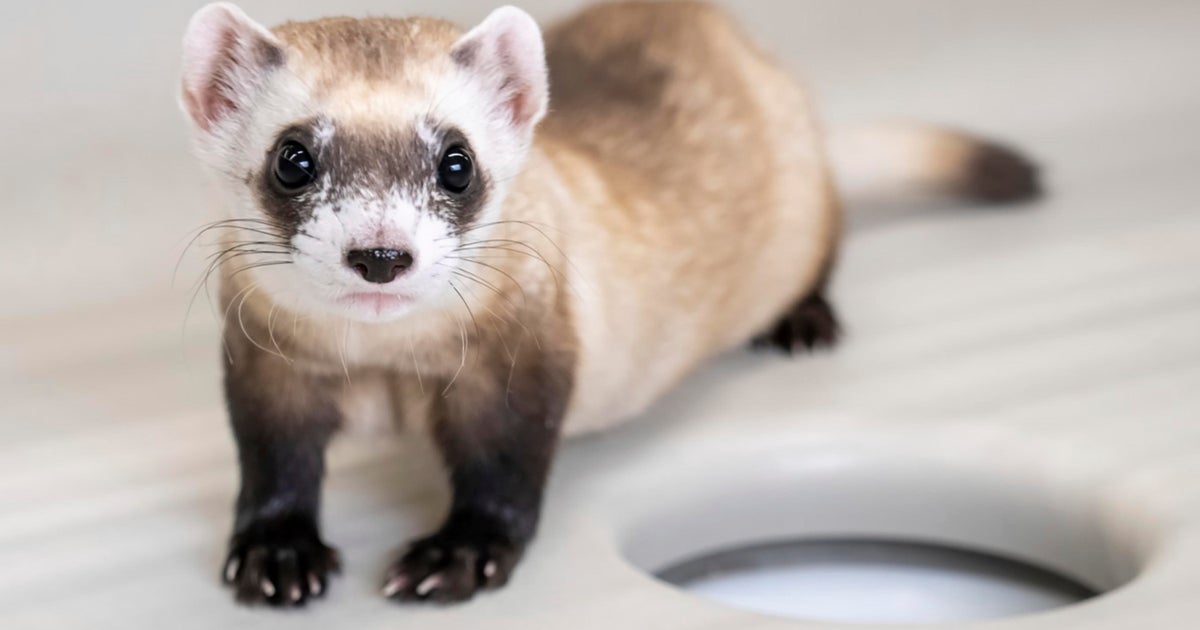
2 more endangered ferrets cloned from animal frozen in the 1980s: "Science takes time"
CBSN
Two more black-footed ferrets have been cloned from the genes used for the first clone of an endangered species in the U.S., bringing to three the number of slinky predators genetically identical to one of the last such animals found in the wild, the U.S. Fish and Wildlife Service announced Wednesday.
Efforts to breed the first clone, a female named Elizabeth Ann born in 2021, have failed, but the recent births of two more cloned females, named Noreen and Antonia, in combination with a captive breeding program launched in the 1980s, are boosting hopes of diversifying the endangered species. Genetic diversity can improve a species' ability to adapt and survive despite disease outbreaks and changing environmental conditions.
"More diversity is better. Then, you're more prepared for things like change, climate and otherwise," Dr. Della Garelle, a FWS veterinarian who works with the ferrets, told CBS "Sunday Mornings" in 2023.
